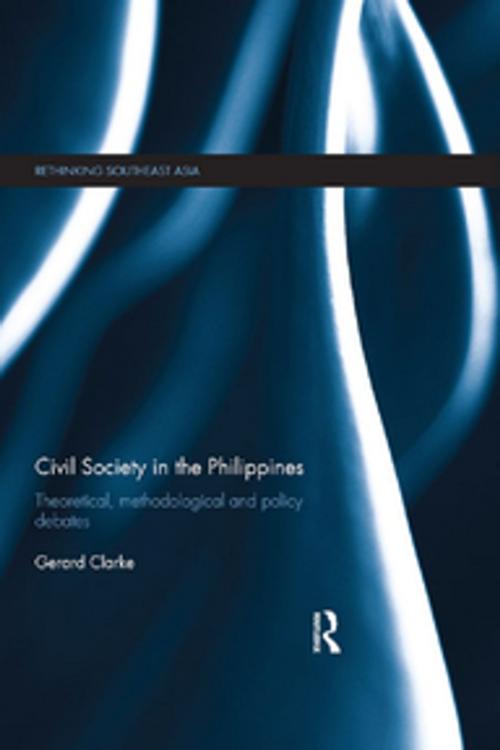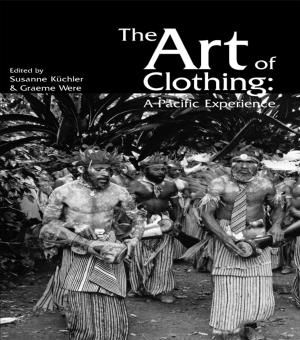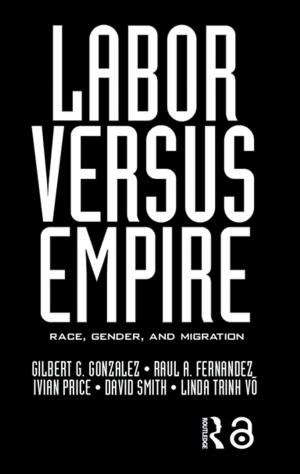Civil Society in the Philippines
Theoretical, Methodological and Policy Debates
Nonfiction, Social & Cultural Studies, Social Science, Cultural Studies, Ethnic Studies, Political Science| Author: | Gerard Clarke | ISBN: | 9781136196010 |
| Publisher: | Taylor and Francis | Publication: | January 17, 2013 |
| Imprint: | Routledge | Language: | English |
| Author: | Gerard Clarke |
| ISBN: | 9781136196010 |
| Publisher: | Taylor and Francis |
| Publication: | January 17, 2013 |
| Imprint: | Routledge |
| Language: | English |
Drawing on qualitative and quantitative research, this book provides a path-breaking account of civil society in the Philippines. It challenges the widespread belief in political science and development studies literature that civil society in developing countries is an institutional arena in which the poor can challenge and reverse their social, economic and political marginalization. The book goes on to argue that Philippine civil society is a captive of organised elite interests and anti-developmental in its impacts, helping elites to oppose the initiatives of reform-minded governments and to protect their interests.
In contrast to literature suggesting that the character of civil society is a function of regime type and hence evolves in a path-dependent manner, the book explores the history of Philippine civil society between 1571 and 2010, and suggests that civil society is primarily a function of the evolving political economy of a country and the resulting social structure. It argues that civil society in nascent democracies such as the Philippines develops in a distinctly non-linear manner, largely independently of regime type or regime development. As a result, it argues, democratization in low income countries does not lead inevitably to broader participation and empowerment through civil society expansion, as many academics, activists and donor representatives suggest.
The book is of interest to students and scholars of Southeast Asian history and politics, as well as those interested in the study of Non-Governmental Organizations (NGOs) and social movements, and in the statistical capture of civil society.
Drawing on qualitative and quantitative research, this book provides a path-breaking account of civil society in the Philippines. It challenges the widespread belief in political science and development studies literature that civil society in developing countries is an institutional arena in which the poor can challenge and reverse their social, economic and political marginalization. The book goes on to argue that Philippine civil society is a captive of organised elite interests and anti-developmental in its impacts, helping elites to oppose the initiatives of reform-minded governments and to protect their interests.
In contrast to literature suggesting that the character of civil society is a function of regime type and hence evolves in a path-dependent manner, the book explores the history of Philippine civil society between 1571 and 2010, and suggests that civil society is primarily a function of the evolving political economy of a country and the resulting social structure. It argues that civil society in nascent democracies such as the Philippines develops in a distinctly non-linear manner, largely independently of regime type or regime development. As a result, it argues, democratization in low income countries does not lead inevitably to broader participation and empowerment through civil society expansion, as many academics, activists and donor representatives suggest.
The book is of interest to students and scholars of Southeast Asian history and politics, as well as those interested in the study of Non-Governmental Organizations (NGOs) and social movements, and in the statistical capture of civil society.















